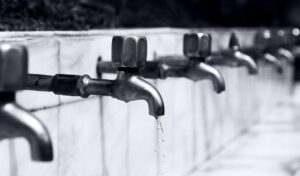Plumbing issues can be a homeowner’s nightmare, causing inconvenience, damage, and often unexpected expenses. However, many of these issues can be prevented through regular maintenance. By implementing simple upkeep tasks and staying proactive, you can avoid common plumbing problems and ensure the smooth operation of your home’s plumbing system. In this guide, we’ll explore practical tips to help you prevent plumbing issues and maintain the integrity of your home’s plumbing infrastructure.

Understanding the Importance of Regular Maintenance
Regular maintenance is the key to keeping your plumbing system in top condition. Just like any other part of your home, your plumbing requires attention and care to function efficiently. By investing time and effort in preventive maintenance, you can avoid costly repairs and potential water damage down the line.
Check for Leaks
One of the most common plumbing issues homeowners face is leaks. Even small leaks can waste a significant amount of water over time and lead to water damage if left unattended. Regularly inspect your faucets, showerheads, and pipes for any signs of leaks, such as dripping or pooling water. Replace worn-out washers and seals promptly to prevent leaks from worsening.
Maintain Your Drains
Clogged drains are another prevalent plumbing problem that can disrupt your daily routine. To prevent drain clogs, avoid disposing of grease, food scraps, and other debris down the kitchen sink. Install drain strainers to catch hair and other particles in the bathroom drains. Additionally, periodically flush your drains with hot water or a mixture of baking soda and vinegar to clear away buildup and keep them flowing smoothly.
Test Your Water Pressure
Low water pressure can indicate underlying plumbing issues, such as leaks, mineral buildup, or pipe obstructions. Regularly check your water pressure using a pressure gauge to ensure it falls within the optimal range. If you notice a sudden drop in water pressure, it could signal a problem that requires professional attention. Addressing issues promptly can prevent further damage to your plumbing system.
Insulate Your Pipes
In colder climates, frozen pipes are a common plumbing issue that can result in burst pipes and water damage. Insulating your pipes, especially those located in unheated areas like the attic or basement, can help prevent them from freezing during winter months. Use pipe insulation sleeves or heat tape to protect vulnerable pipes and keep the water flowing freely.
Maintain Your Water Heater
Your water heater plays a crucial role in providing hot water for bathing, cleaning, and other household tasks. To extend its lifespan and prevent malfunctions, flush your water heater tank annually to remove sediment buildup. Inspect the temperature and pressure relief valve for leaks and test it for proper operation. Consider scheduling regular maintenance with a professional plumber to ensure optimal performance.
Monitor Your Toilet
Toilets are prone to various issues, such as running continuously, clogging, or leaking. Periodically check for signs of toilet leaks, such as water around the base or a constantly running toilet. Replace worn-out flapper valves and flush handles to maintain proper flushing functionality. Avoid flushing non-flushable items, such as sanitary products or wipes, to prevent toilet clogs and potential sewer backups.
Preventing common plumbing issues through regular maintenance is essential for preserving the integrity of your home’s plumbing system and avoiding costly repairs. By implementing the tips outlined in this guide, you can stay proactive in maintaining your plumbing and enjoy a hassle-free plumbing experience. Remember that preventive maintenance is key to keeping your plumbing flowing smoothly and your home protected from water damage.
